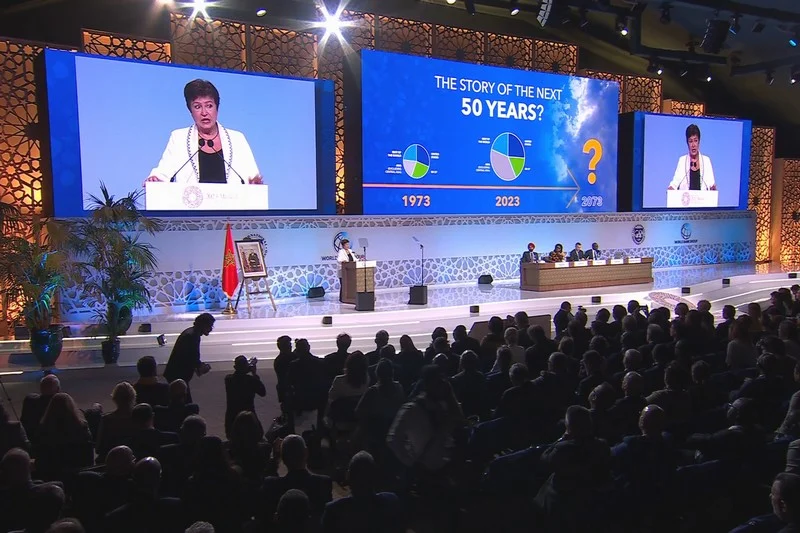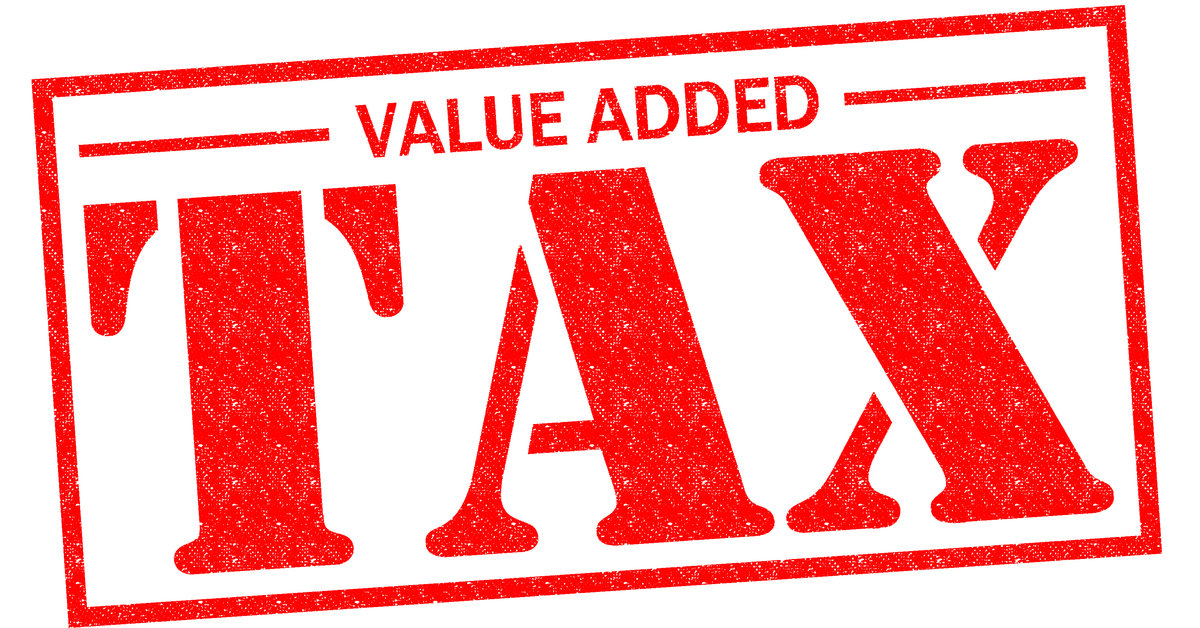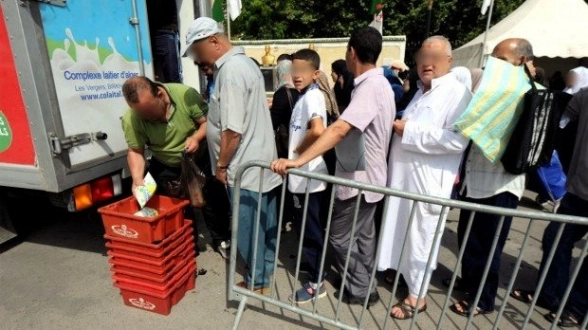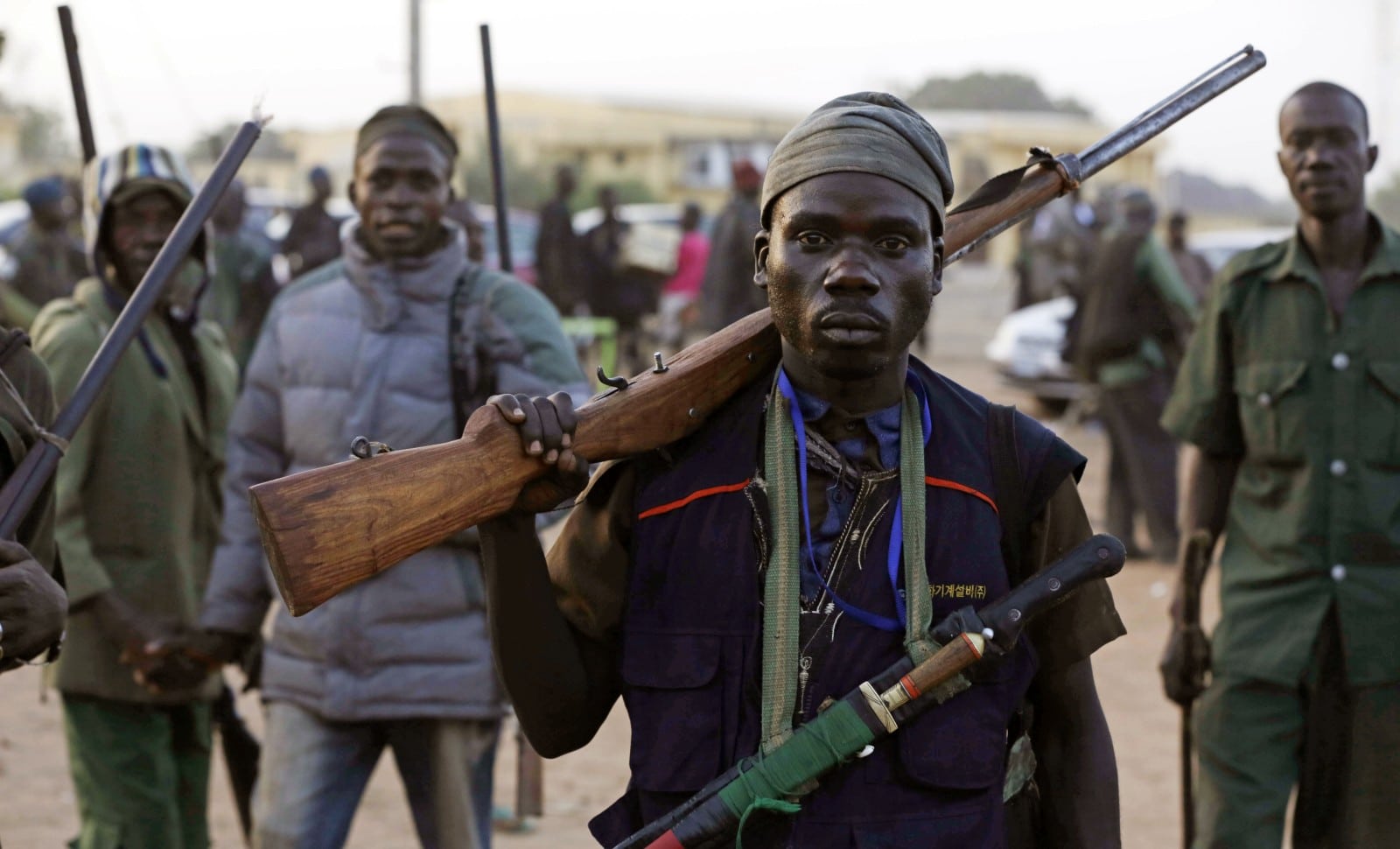Managing Director of the International Monetary Fund (IMF) Kristalina Georgieva said on Friday that price stability is “is a prerequisite for growth and it protects people, especially the poor.” This means the fight against inflation remains paramount.
In her address at the plenary session of the 2023 annual meetings of the World Bank and the IMF held in Marrakesh, Georgieva said that investing in “strong economic foundations in light of weak growth prospects in the medium term has become sound and necessary policies and reforms.”
After a long period of economic “convergence,” a dangerous divergence between countries and regions has emerged. Made worse by fragmentation, climate change, and fragility, which has left many countries at a breaking point. This is especially the case here on the African continent—home to the world’s youngest population. Progress in closing the income gap with more advanced economies and generating job-rich growth will be vital over the next 50 years, she argued.
In a clear message to policy-makers, Georgieva added: “If we face completely different economic conditions, policymakers must build sound economic foundations through sound policies.” The world will face “high interest rates for a longer period,” she said, considering that further tightening of financial conditions could harm “markets and non-banking institutions,” and that strong supervision represents a necessary factor and that prudent public financial policy has become more important than ever before.
Complementing these foundational policies, transformational reforms are also key to boost medium-term growth, she said mentioning improved governance, fight against corruption, streamlined regulation that makes it easier to open and run a business, reforms to boost trade and improve access to capital, and increasing labor force participation, especially for women.
The right package of reforms could boost output levels by up to 8 percent in four years, she said, pointing out that the highest return of all comes from investing in people: especially education to ready the young people – including those right here in Africa – for the jobs of tomorrow.
She also revealed exciting data about the indebtedness of middle-income countries, as she confirmed that more than half of these countries have reached a state of critical indebtedness, and a fifth of emerging economies face differences in interest rates like what we see in cases of default upon payment.
The IMF Chief recalled that the recently-held Round Table on Global Sovereign Debts included all relevant creditors and debtors, considering that there are “promising signs for the future.” This is in an attempt to send a message of reassurance to countries groaning under the weight of indebtedness, she said.
Georgieva pointed out that the global financial safety net represents a lifeline for many countries in their time of need, in which the International Monetary Fund occupies a leading position, as the Fund’s role has remained “prominent as a guarantor of those who have no guarantor over the past three years.”
Since the beginning of the pandemic, the Fund has provided $1 trillion in liquidity and reserves, she said, stressing that this was achieved by distributing “allocations from Special Drawing Rights equivalent to $650 billion, and loans worth $320 billion to 96 countries.”
She explained that the Fund first activated its program by alleviating debts for the poorest member states.
During the plenary session, WB president Ajay Banga on his part laid out ambitious plans to widen the development lender’s mission to include climate change and other global crises, speed decision-making and offer more – and cheaper – loans.
In his first major address since taking office on June 2, the former MasterCard CEO said balance sheet steps in process would yield $157 billion in new lending capacity over a decade, and the World Bank would explore loan maturities of 35-40 years for social and human capital investments.
“We’re investigating if we can reduce interest rates to incentivize exiting from coal as part of energy transitions,” Banga told the plenary session.
The lender also is looking for other ways to increase concessional finance for energy transitions for countries that use both its main lending arm for middle-income countries and its fund for low-income countries, Banga added.
His remarks come a day after the World Bank’s governing body approved a new vision statement: “To create a world free of poverty – on a liveable planet.”
The change, which has been in process for a year, broadens the bank’s previous statement focused on reducing poverty and promoting shared prosperity to include easing global crises also including pandemics, food security and fragile states.
The Indian-born US citizen said he was calling on member countries to replenish the bank’s Crisis Response Window, with a goal of raising $4 billion.



